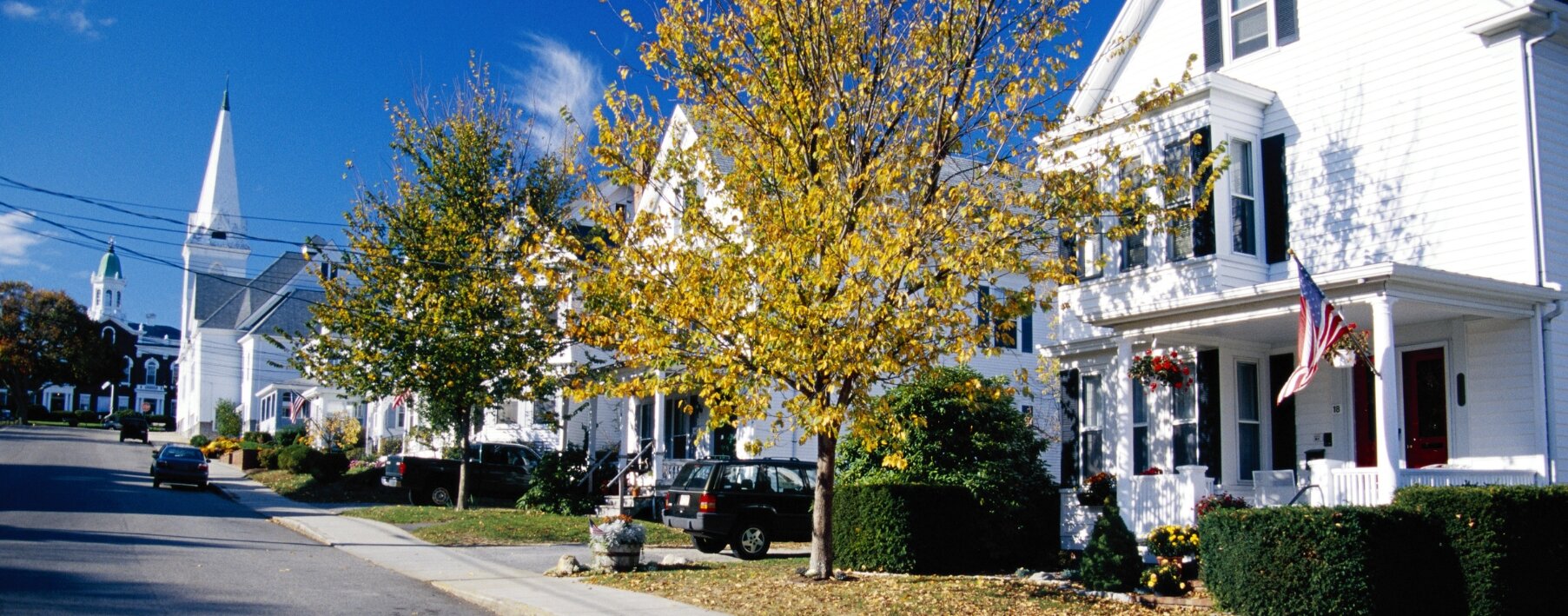Exclusions in insurance decoded

When buying a home insurance policy, it’s easy to be confused by the fine print and details of that coverage. You might even be tempted to just gloss over those pages entirely. However, this fine print contains what are arguably some of the most important details of your insurance policy, letting you know exactly what your coverage doesn’t protect against.
These exclusions in insurance can show you where you have coverage gaps and even tell you what sort of extra coverage you should consider buying. Read on to learn more about what is an exclusion in insurance and how to ensure your policy offers the right protection for you.
Key takeaways
-
Insurance policy exclusions are perils, specific events, and even objects in your home for which your homeowners insurance company won’t provide financial protection.
-
Your policy’s coverage exclusions are usually listed in the definitions and policy sections of your homeowners insurance documents.
-
By identifying and understanding your policy exclusions, you can decide whether to expand your coverage, add endorsements, or even purchase separate insurance to protect yourself better.
What are the typical exclusions in an insurance policy?
Home insurance providers may list various insurance exclusions in their policies, either to protect themselves or because they’re so high-risk that they require a separate rider altogether. Though you should always check your policy for your specific exclusions, the list below will give you a pretty good idea of what typically isn’t included in your home insurance protection plan.
Home insurance exclusions include earth movements, catastrophic events, war, nuclear hazards, owner neglect, purposeful actions, water damage, illegal activity and those situations that require a separate rider.
Here are some common examples of exclusions in insurance and what you can do to protect your financial interests.
Earth movements
One common exclusion in insurance policies is earth movements, such as earthquakes, aftershocks, and volcanic activity. While earthquakes can happen anywhere, buying earthquake insurance can be especially wise if you live near a fault zone or in an area prone to seismic activity. Without this added coverage, any structural damage to your dwelling or personal belongings would be excluded.
Catastrophic events
When it comes to policy exclusions, insurance companies often exclude serious catastrophic events from standard coverage, especially if you live in an area that’s prone to those sorts of perils. The word “catastrophic” covers many different natural disasters, too. Common exclusions may include hurricanes and floods).
While standard home insurance does cover your dwelling against hail, fire, and even wind damage, you may still need to purchase windstorm insurance if you live on the coast or flood insurance if your home is located in an area that could be subject to flooding, which is more than you think.
You could also consider purchasing a catastrophe insurance policy to protect your property against multiple natural disasters.
War or nuclear hazards
While acts of war or nuclear hazards may appear rare and unlikely, they would affect many homeowners at once if they occurred. For this reason, they are common homeowners insurance exclusions. If a war breaks out or a nuclear hazard damages your home, you won’t be able to turn to your insurance provider for financial assistance.
Owner neglect
While your home insurance coverage can help pay for repairing or replacing certain damaged structures and systems, the cause of that damage is important. If lightning strikes your home and damages your HVAC unit, you may be covered, especially if you have an equipment breakdown coverage endorsement added to your policy. However, if you never changed your air filters and your HVAC system breaks down, that’s considered preventable damage and is likely a coverage exclusion, so the expense would be yours.
Purposeful actions
Since home insurance is there to protect you from the unexpected, most carriers explicitly exclude purposeful actions from your coverage. If you purposefully damage your home’s structure, appliances, or personal property, your insurance won’t cover the expense.
Power Failure
There are many reasons why the power may fail at your home, including, but not limited to, lightning strikes, storm damage, rolling blackouts, and even old faulty wiring. Power surges can easily damage electrical systems, outlets, and any electronics or appliances plugged into outlets at the time.
Power failure exclusions are common in many homeowners policies, depending on the cause of the failure. For example, policies may cover damages due to power failure from a lightning strike. However, damages caused by planned electrical company outages or power surges or as a result of failing to pay your electric bill may be excluded.
Water damage
Your policy may cover water damage to your structures, flooring, and personal belongings such as caused by a plumbing pipe bursting or a roof leak during a big storm, based upon the terms and conditions of your policy. Otherwise, water damage from floods, sewer backups, and even appliance malfunctions may be expressly excluded from your home insurance coverage in most cases. You’ll only get protection from these water-related damages by purchasing separate insurance riders, like water backup coverage.
Illegal activities
Damages to your home or belongings related to illegal activities are excluded from your coverage. If you or someone living in your home damages your property or personal items while committing a crime, expect your insurance to deny the claim as an exclusion. However, policies may generally cover damages caused by someone not living in your home, like if somebody breaks into your house and steals or damages your belongings.
Situations that require a rider
Sometimes, homeowners may be required to purchase certain endorsements or add-on insurance riders when buying their policy. These required riders offer coverage for perils or situations that are a base policy exclusion and may be government-regulated or location-specific. For example, separate hurricane insurance is necessary for homeowners in coastal areas.
If your home is financed through a mortgage lender, expect them to require you to buy certain coverage riders. These riders help adequately protect your home against exclusions in your insurance coverage and fully insure your investment.
Other types of exclusions
Each carrier and policy has its own coverages and exclusions, so it’s important to read your homeowners insurance documents to see what is and isn’t covered. In general, though, other standard policy exclusions include things like:
-
Typical wear and tear to the home
-
Damages related to pests and vermin (such as termites, rodents, bedbugs, etc.)
-
Mold damage, unless it’s directly related to covered, acute water intrusion (such as a water pipe bursting)
-
Foundation settling and related damages
-
Damages tied to a home-based business
-
The full repair or replacement cost of high-value items, like jewelry or collectible art
Where can I find my policy exclusions?
Unlike other key details of your home insurance policy, policy exclusions may not all be listed on your insurance declaration page. To understand all of your exclusions, you will need to look to review your policy to determine what it excludes. Though it varies by provider, coverage exclusions are likely outlined in the definitions and policy sections of your home insurance documents.
How to get coverage for exclusions?
Now you understand which damages are excluded from typical homeowners insurance policies. But how do you protect your home against these types of losses anyway?
You can usually purchase endorsements to boost your policy's coverage. These add-ons, also called riders, can expand your coverage to include higher item limits or even add perils that would otherwise be considered exclusions in insurance coverage. If endorsements aren’t available, you may need to purchase a separate policy to adequately protect your home against perils like hurricanes or floods.
Still have questions?
Want to know more about homeowners insurance policy exclusions? Here are some of the most frequently asked questions.
Is earth movement the same as earthquake insurance?
Damages related to earth movement damages can include things like earthquakes, mudslides, or even volcanoes. An earthquake insurance policy would cover earthquakes, but you’d need additional coverage — like catastrophe insurance — if you also wanted to protect against other forms of earth movement.
Do all home insurance policies have the same exclusions?
Home insurance policy exclusions vary from carrier to carrier and even between policies. It’s important to read your specific policy documents to understand exactly what’s excluded and where you have protection gaps in your home coverage.
How do I find out what home insurance exclusions apply to my policy?
Your insurance coverage exclusions will be listed in your homeowners policy documents. Read your entire policy carefully to see what applies to your home and where you can add coverage.
Does homeowners insurance cover structural problems?
Homeowners insurance may cover structural issues related to a covered peril, such as a fire or wind storm. If your home's structural problems result from settling or earth movements specifically excluded by the policy, they won't be covered.
Are insurance add-ons or endorsements worth the extra cost?
This really depends on you. Homeowners insurance endorsements may be a low-cost way to add more coverage to your policy and are often worth the added expense. Rather than leaving your home unprotected against certain perils, these add-ons may provide an affordable way to fill in coverage gaps and better protect your property against loss. Talk to your insurance agent for more information.



